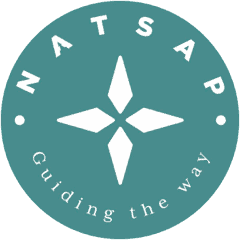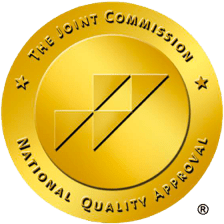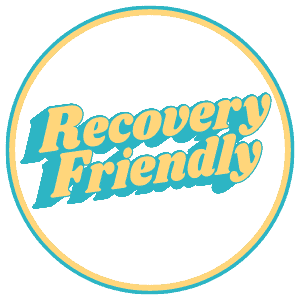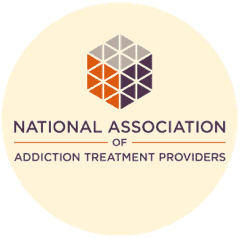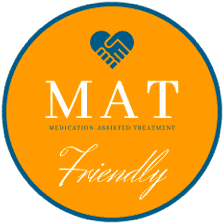At Next Step Recovery, we believe recovery is a family journey that should include family recovery support. Addiction takes a tremendous toll on families who often struggle for years with the emotional, financial and physical consequences of untreated addiction.
The road to recovery, which often includes relapses, job and relationship losses, can be a long and exhausting one, particularly when families don’t get support for their own recovery process. Even the best recovery programs can fail to heal long-standing family trauma with complete buy in.
The good news is that families can have a tremendous positive impact on recovery when they commit to their own healing. In fact, recovery offers many opportunities to build stronger families through self-discovery, personal growth and cultivating more authentic and healthy relationships. Some of our family testimonials are proof of that.
There are many ways families can support their own healing process. Below are a few tips for families embarking on this recovery journey.
1. Educate yourself about addiction.
This includes learning about the disease of addiction and its impact on the addict and the entire family. You can support the whole family’s recovery by exploring underlying issues and family dynamics that may have contributed to unhealthy coping behaviors including substance use and abuse. Weekend family education programs like the one offered by Pavillon here in Western North Carolina can be very helpful for families in early recovery.
2. Love your family member.
The best way you can love your recovering family member is to learn how to communicate and offer support that empowers personal growth, responsibility and accountability. Even with the best of intentions, families often try to help in ways that enable and prolong addictive behaviors. Melody Beattie’s book Codependent No More or any of the books by Pia Melody can help you discover how to empower yourself and those you love.
3. Love yourself.
Acknowledge you are in your own recovery process and deserve support too. Addiction often takes a heavy financial, emotional and physical toll on families and their relationships. Self care and recognizing all family members have needs should be an important part of any family recovery plan. Maintaining a balanced focus helps model this same healthy outlook for all family members.
4. Get support.
Twelve-step peer support, counseling and spiritual guidance can all be vital for supporting long-term recovery, not just for the recovering addict but for their families as well. Groups like Al-Anon, Nar-Anon and Co-Dependents Anonymous can help reduce a sense of isolation, confusion and grief and provide your family with valuable education, resources and hope. Here is a list of additional addiction support services.
5. Recognize your family member’s strengths.
It is important to recognize your family member has the strengths and inner resources they need to choose the road to recovery. A transitional living community like Next Step Recovery can greatly improve your family member’s long-term success while providing you with the time and space to focus on your family’s healing and growth.
6. Recognize your own strengths.
Identifying your own inner resources can be a source of comfort and strength as you move through your own recovery process. It can be helpful to reflect on the things that have helped you get through other challenging times such as job changes, the loss of a loved one, or health challenges. You can draw on these resources now while exploring new ones.
7. Set clear boundaries.
One of the first steps to recognizing and healing co-dependency is getting clear on our own needs, and then setting clear boundaries that support them. The recovery process reminds us we can’t change anyone else’s behavior, but we can change our own. This frees us to focus on our own growth and healing, which, paradoxically, empowers others to do the same.
8. Create new family traditions.
Many family celebrations, especially birthdays and holidays, include alcohol. It is important for families to learn how to spend time together without relying on mind-altering substances. Creating new family traditions can help strengthen family relationships and provide a safe environment that supports ongoing recovery.
9. Don’t forget to have fun.
There are many ways to relax and have fun without alcohol or drugs, and it is important for recovering addicts to discover them. That’s why we believe so deeply in adventure therapy. As a family, creating opportunities to play together can help rebuild trust and communication and help everyone feel happier and healthier in the process. You may want to revisit substance-free activities your family has enjoyed in the past like games, hikes, and outdoor activities and also explore new activities and “playgrounds.”
10. Don’t play the shame game.
This is one game you want to be sure to avoid, and it includes not blaming yourself for your family member’s addiction and not shaming your recovering family member. It is estimated that 1 in 3 families have been touched by addiction. You are not alone, and you are not to blame. Reaching out for help and focusing on victories, no matter how small, are how families win in recovery.
Know someone who might benefit from this post? Please like and share this post with them. Or, if you have questions or comments, please leave them below! We’re always looking for ways to keep the conversation about recovery going. Education is one the most powerful tools we have to combat addiction.



